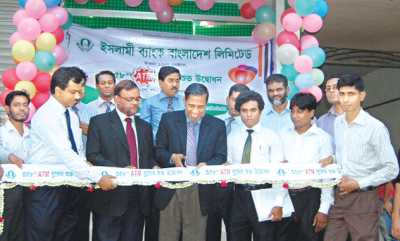All the new nine banks, which had launched their commercial operations just a year back, are lucky enough to see profits in their very first year despite the sluggish investment climate, political unrest and slower credit growths.
All those new banks made profits within a year in 2013 at a time when the overall banking business faced a serious setback due to the political unrest over the January 5 national polls.
The banks are South Bangla Agriculture and Commerce Bank, Meghna Bank, Midland Bank, Union Bank, The Farmar’s Bank, NRB Commercial Bank, NRB Bank, Modhumoti Bank and NRB Global Bank.
Although the overall banking sector could not perform well due to the prevailing sluggish investment climate, the new banks made initial profits as they were not burdened with the default loans like other commercial banks, and consequently they did not require maintaining necessary provision, a senior executive of Bangladesh Bank (BB) told the Dhaka Tribune.
According to BB data, provisional net profit of Meghna Bank stood at Tk3.5 crore, Midland Bank Tk3.03 crore, Modhumoti Bank Tk6.3 crore, NRB Bank Tk1.2 crore, NRB Commercial Bank Tk2.3 crore, South Bangla Agriculture and Commerce Bank Tk4.6 crore, Farmar’s Bank Tk5.4 crore while Union Bank made a profit worth Tk8.7 crore.
New banks have made the profits mainly by lending their paid up capital worth Tk400 crore to different banks and financial institutions as term loan, said A K M Shahidul Haque, managing director of Midland Bank.
He said: “The real investments of all the commercial banks were not notably enough in the last year as the overall economic activities had come to an almost halt amid political unrest. Moreover, maximum banks continued to keep their operating cost lower till now to survive in the competitive market.”
The new banks made profits despite the obstacles just because of the key role played by the experienced bankers, said Rafiqul Islam, managing director of South Bangla Agriculture and Commerce Bank.
“The new banks are also facing difficulties in getting business as per expectation mainly due to the higher interest on loans. As a result, we are not getting any foreign fund,’’ he added.
As of February 20, 2014, the average advance-deposit ratio (ADR) of the nine new banks stood 54%, meaning the banks lent only Tk54 against a deposit of Tk100, which is much lower than the industries’ average of 70.35% against the Bangladesh Bank’s ceiling of 85%.
Of the new banks, ADR of NRB Commercial was 73.96%, South Bangla 65.36%, Meghna 65.65%, Midland 64.02%, The Farmar’s 23.46%, Union 72.83%, NRB 24.10%, NRB Global 83.72% while the ADR of Modhumoti Bank was 15%.
The central bank approved nine new banks in two phases in 2013 to take the country’s total number of scheduled banks to 56, of which, 39 are private, nine foreign and eight are state-owned. The nine new banks were established with the paid up capital of Tk400 crore each.





 Mati-ul-Hasan has been joined as Deputy Managing Director of
Mati-ul-Hasan has been joined as Deputy Managing Director of